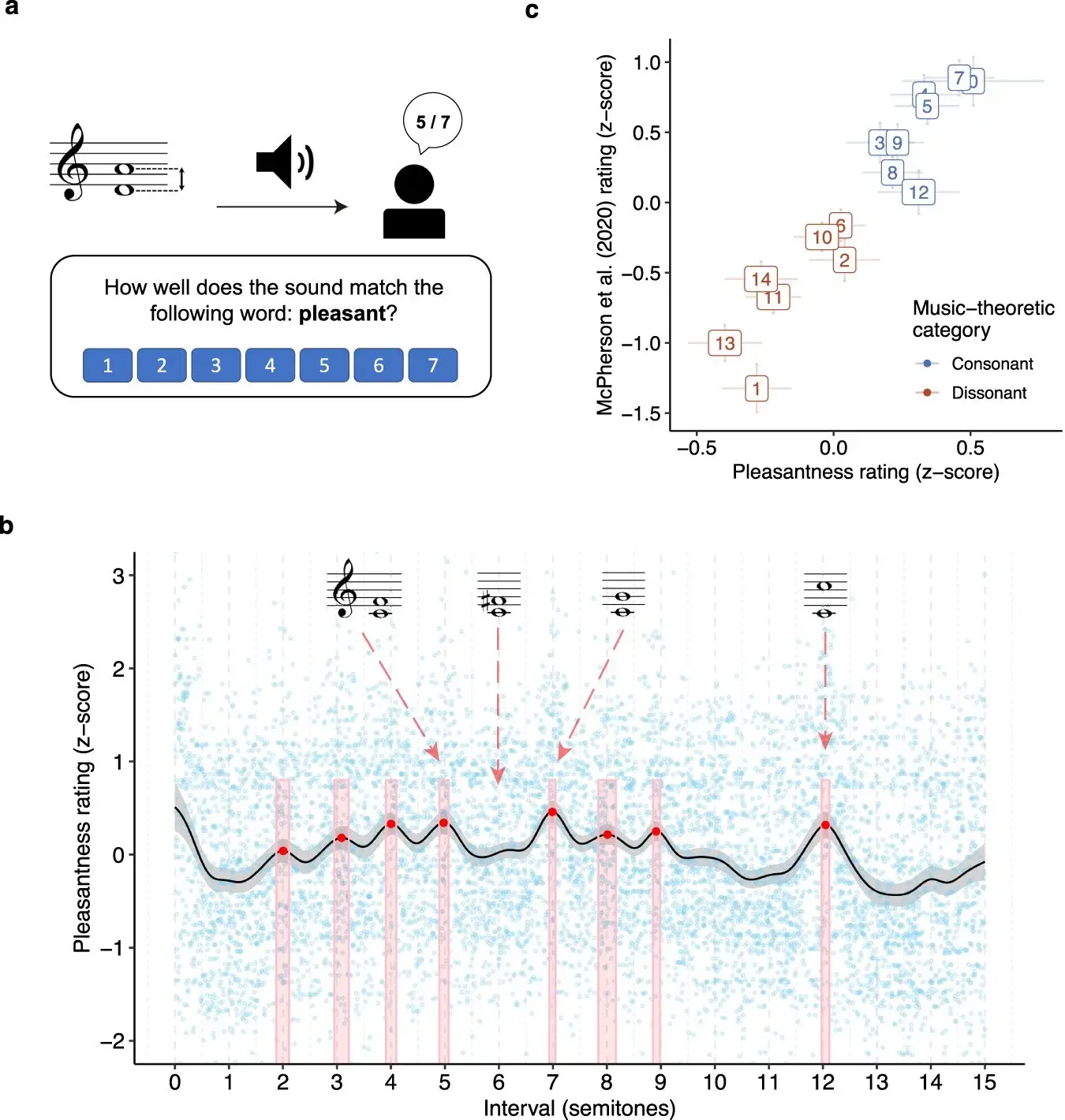Archive: https://ghostarchive.org/archive/XuAaf | Excerpts:
According to the Ancient Greek philosopher Pythagoras, ‘consonance’—a pleasant-sounding combination of notes—is produced by special relationships between simple numbers such as 3 and 4. More recently, scholars have tried to find psychological explanations, but these ‘integer ratios’ are still credited with making a chord sound beautiful, and deviation from them is thought to make music ‘dissonant,’ unpleasant sounding.
But researchers from the University of Cambridge, Princeton and the Max Planck Institute for Empirical Aesthetics, have now discovered two key ways in which Pythagoras was wrong.
First: “We prefer slight amounts of deviation. We like a little imperfection because this gives life to the sounds, and that is attractive to us.”
Second:
“Western research has focused so much on familiar orchestral instruments, but other musical cultures use instruments that, because of their shape and physics, are what we would call ‘inharmonic.’”
“Our findings suggest that if you use different instruments, you can unlock a whole new harmonic language that people intuitively appreciate, they don’t need to study it to appreciate it. A lot of experimental music in the last 100 years of Western classical music has been quite hard for listeners because it involves highly abstract structures that are hard to enjoy. In contrast, psychological findings like ours can help stimulate new music that listeners intuitively enjoy.”



One of the things that I think is probably about Kraftwerk and other electronic music is that often their synths are very slightly detuned so that intervals aren’t perfect and sounds that aren’t perfectly consonant. This gives it a “crunchier”, more complex sound that is more pleasing than sounds that are perfectly in tune/in phase with each other.